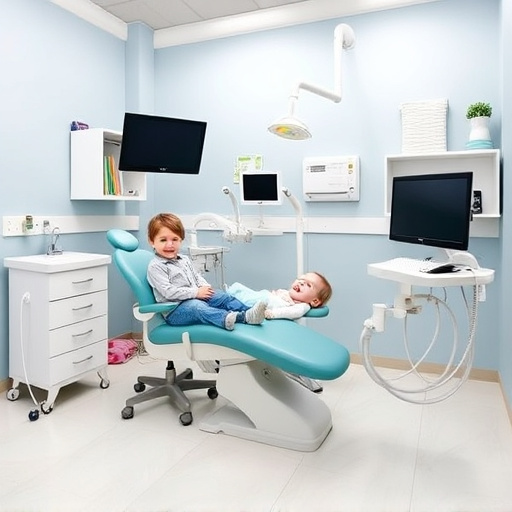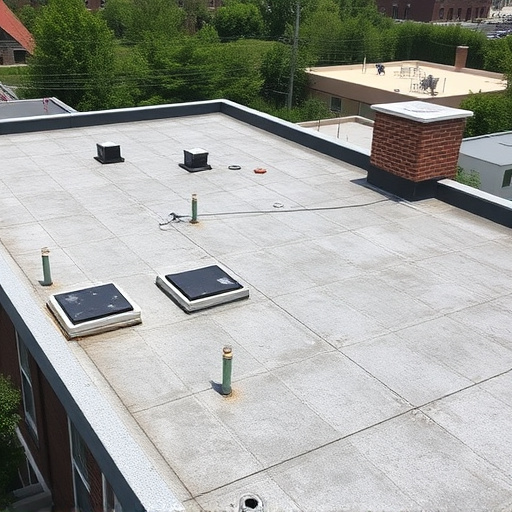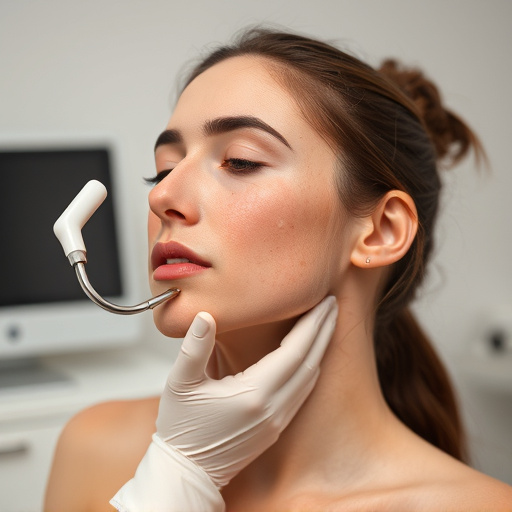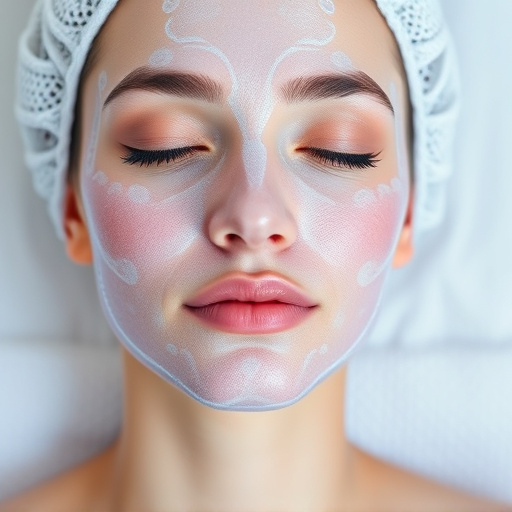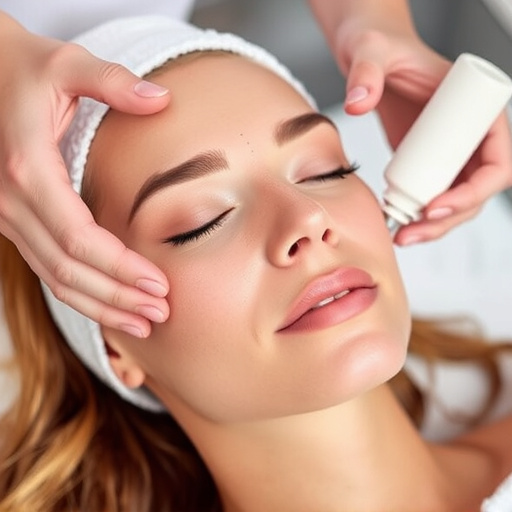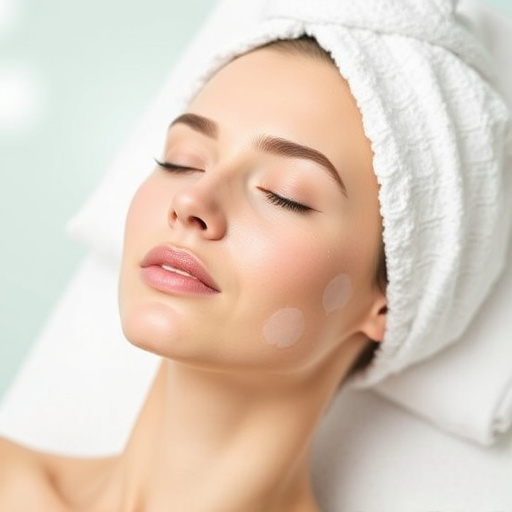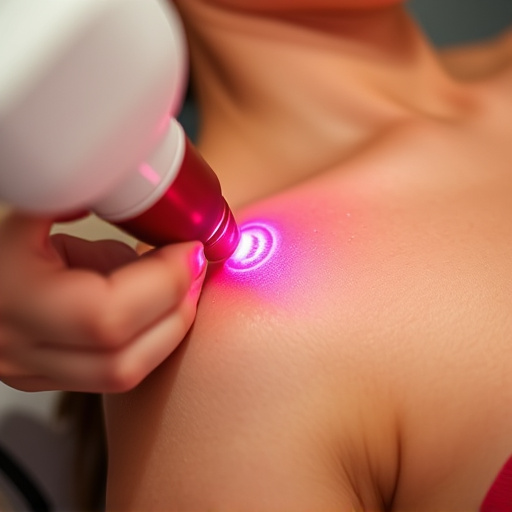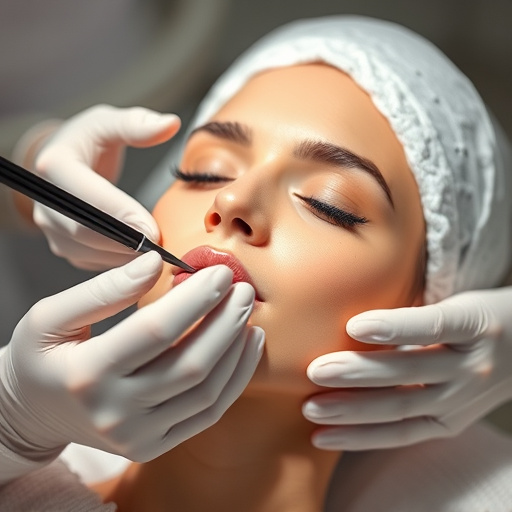Sleep and stress management are crucial for maintaining skin health and preventing premature aging. During sleep, our bodies produce collagen essential for keeping skin elastic. Chronic sleep deprivation leads to reduced collagen levels and increased environmental damage, contributing to wrinkle formation. Stress triggers inflammation, hindering the skin's healing process and speeding up the aging process. Techniques like meditation, exercise, consistent skincare routines, and effective acne treatments offer holistic approaches to wrinkle reduction and enhancing overall skin well-being. Adequate sleep (7-9 hours) and stress management are essential strategies for preventing wrinkles, complementing professional treatments like facials and non-surgical procedures by boosting skin elasticity and reducing inflammation.
Uncover the intriguing connection between sleep, stress, and the aging of your skin. This article explores how inadequate rest and heightened anxiety can accelerate wrinkle formation, offering insights into their profound impact on skin health. We delve into the scientific explanations behind these phenomena, revealing the intricate relationship between stress hormones, inflammation, and collagen degradation. Additionally, discover effective strategies for wrinkle reduction that go beyond topical treatments, emphasizing lifestyle adjustments for a youthful complexion.
- Understanding Sleep's Impact on Skin Health and Stress Management
- The Science Behind Stress and Wrinkle Formation
- Effective Strategies for Wrinkle Reduction: Beyond Treatment Options
Understanding Sleep's Impact on Skin Health and Stress Management
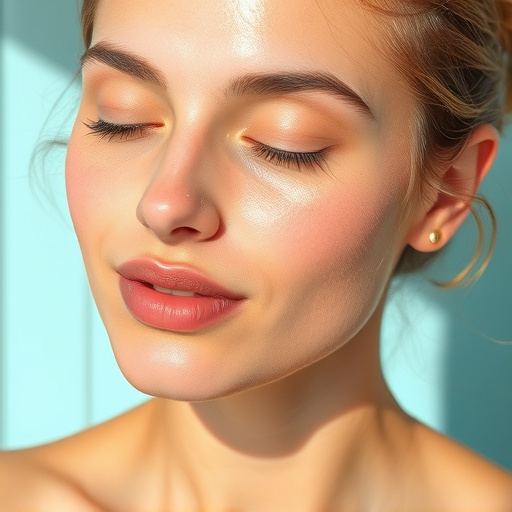
Sleep plays a pivotal role in maintaining skin health and overall well-being. During rest, our bodies undergo various restorative processes crucial for skin regeneration. Adequate sleep promotes collagen production, a protein essential for skin elasticity and firming. When we don’t get enough sleep, these restorative mechanisms are hindered, leading to potential wrinkle formation over time. Collagen degradation and reduced skin barrier function can result from chronic sleep deprivation, making the skin more susceptible to environmental damage.
Stress, another significant factor, also has a profound impact on skin health. High-stress levels can trigger inflammation, affecting the skin’s natural healing process. Prolonged stress may contribute to accelerated aging, including an increase in wrinkles and fine lines. Managing stress through techniques like meditation or exercise is not only beneficial for mental well-being but also supports personalized skincare routines aimed at wrinkle reduction treatment. Incorporating effective acne treatments and maintaining a consistent skincare regimen can further enhance skin health and potentially mitigate the visible signs of stress.
The Science Behind Stress and Wrinkle Formation

The relationship between stress, sleep quality, and skin aging is a fascinating area of study in dermatology. When we experience chronic stress, our bodies release a cascade of hormones, including cortisol, which can have significant effects on various physiological processes. One notable impact is its influence on collagen production and degradation—a protein vital for maintaining skin elasticity and structure. Over time, elevated cortisol levels contribute to the breakdown of collagen fibers, leading to visible signs of aging like wrinkles and reduced skin firmness.
This process is further complicated by insufficient sleep, which disrupts the body’s natural repair mechanisms. During sleep, our bodies release growth hormones that stimulate collagen synthesis, helping to repair and regenerate skin cells. Lack of quality rest hampers this restoration process, exacerbating the detrimental effects of stress on the skin. As a result, individuals facing persistent stress and irregular sleep patterns may require targeted interventions, such as non-surgical treatments focusing on skin tightening and wrinkle reduction, to combat these aging factors effectively.
Effective Strategies for Wrinkle Reduction: Beyond Treatment Options

In addition to professional wrinkle reduction treatments like customized facials and non-surgical skin tightening procedures, there are several effective strategies individuals can adopt to mitigate the formation of wrinkles. Adequate sleep plays a pivotal role in maintaining skin health; during rest, the body produces essential proteins responsible for skin elasticity and collagen synthesis. Chronic sleep deprivation, on the other hand, can lead to increased inflammation and accelerated aging signs. Therefore, prioritizing 7-9 hours of uninterrupted sleep nightly is crucial for wrinkle prevention.
Another vital aspect is managing stress levels through practices such as mindfulness meditation, deep breathing exercises, or yoga. High-stress conditions prompt the release of cortisol, a hormone known to break down collagen and elastin fibers, leading to premature wrinkle formation. By adopting these holistic approaches, individuals can complement their chosen wrinkle reduction treatments, promoting healthier, smoother skin for longer periods.
Sleep is a powerful ally in the battle against stress-induced wrinkles. By prioritizing quality rest and managing stress through proven techniques, individuals can significantly enhance their skin’s health and appearance. While various treatments offer wrinkle reduction, adopting a holistic approach that includes adequate sleep and stress management provides a sustainable foundation for radiant, youthful skin. Incorporating these strategies into daily routines can ensure that your skin receives the care it deserves, ultimately leading to a more relaxed and rejuvenated complexion.



